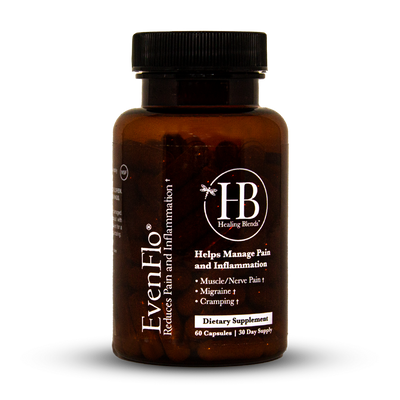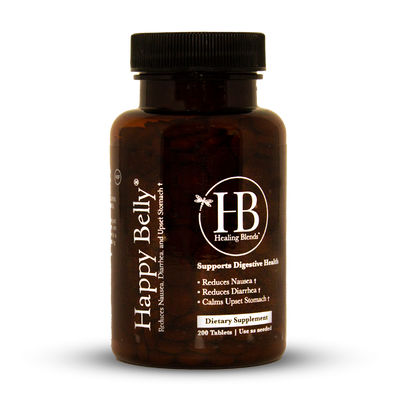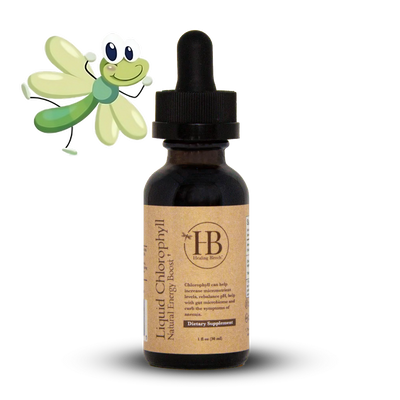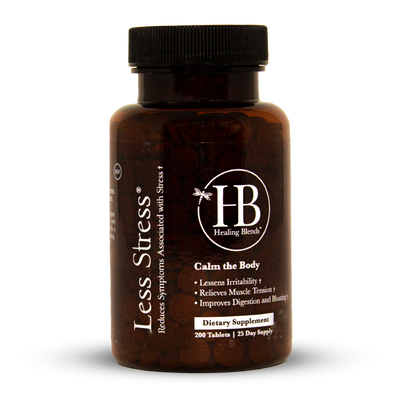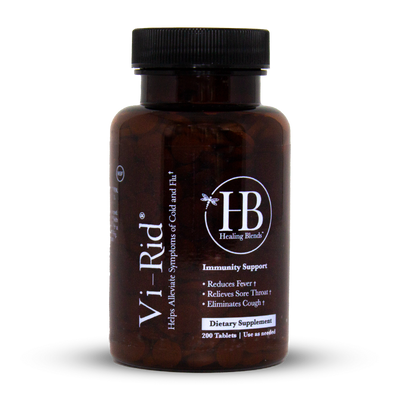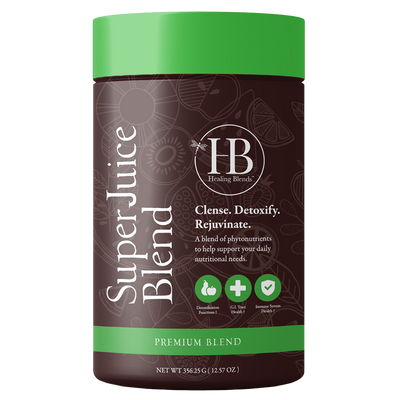Gut Health & Sickle Cell Disease: How Does the GUT Impact SCD?

The “gut” in this context is an informal reference to the gastrointestinal tract – the stomach and the intestines. The human gut is home to the microbiome - various microorganisms, bacteria, fungi, and viruses. It is an unfathomable ecosystem of trillions of microbiota that are vital for the body to maintain homeostasis. These commensal organisms impress upon every function of our physiology, thereby underpinning every prominent aspect of our life.
This microbiome is colloquially referred to as “gut flora”. It plays a crucial role in nutrient and mineral absorption, synthesis of enzymes, vitamins and amino acids, and production of short-chain fatty acids among other things. They play a crucial role in our physical health, mood stability, immunity, and many other vital functions.
More importantly, there is a strong brain-gut microbiome axis that influences our physical and mental health.
Hypoxia, Gut Health, and Sickle Cell Disease:

Hypoxia means insufficient or low oxygen in the tissues. It can be caused by a variety of conditions that hinder the body’s ability to transport oxygen via the blood to the tissues in the human body. It can be caused by lung conditions like asthma or bronchitis and heart conditions or defects.
Hypoxia is a common concern among SCD patients because hemoglobinS has a poor oxygen-carrying capacity. It deprives the tissue of requisite oxygen and can contribute to disease severity and lead to serious complications like pulmonary hypertension.
Research conducted in 2020 indicates that hypoxia can lead to alterations of gut microbiota and elicit sleep disturbances or the mediated consequences. It brings to light the fact that hypoxia induces alterations in the microbiome. The key revelation of the study was that intermittent hypoxia can alter the diversity and composition of the gut microbiome, which in turn may engender other associated morbidities.
Takeaway: Hypoxia can adversely impact the balance of gut flora and consequently exacerbate associated morbidities or escalate disease severity. For this reason, SCD patients need to recognize the importance of maintaining good gut health.
 Take the Quiz!
Take the Quiz!
5 Simple Ways to Improve Gut Health:

The Western diet is notoriously lacking in foods that are essential to good gut health. The modern lifestyle is rife with processed/pre-packaged food, high levels of stress, poor sleeping habits, and the use of antibiotics. The first step to fixing your gut health starts with eating regular meals and opting for a diet rich in a variety of plants and whole foods. Let us look at five additional things you can do for your gut health.
#1 Probiotics
Probiotics are good bacteria or yeasts that help the healthy functioning of the digestive system. They are found in dairy products like kefir, yogurt, cheese, and buttermilk and fermented foods like kimchi, sauerkraut, pickles, and kombucha. Such foods provide a bounty of benefits for your gut health that in turn has a positive impact on your overall health. Probiotic foods and supplements are generally safe for most people, but if you have any immune system problems you should consult your primary healthcare practitioner before consuming them.
#2 Prebiotics
Recent research has revealed that prebiotics play an equally important role in gut health. Put simply, probiotics refers to beneficial bacteria and prebiotics refers to foods that provide nutrition for the beneficial bacteria.
Most of these prebiotics are found in fiber available from carbs of food items like garlic, artichoke, onions, leeks, bananas, and asparagus. By fueling the probiotics, they will ensure that you maintain a healthy balance of gut microbiota.
#3 Live well and reduce stress
We’ve already highlighted how stress is a root cause of numerous health issues in our previous articles. It is equally malevolent in this context of your gut health. Your gut microbiota can suffer from a variety of stressors like extreme weather, sleep deprivation, a high-pressure work environment, emotional stress, psychological trauma, etc.
In previous articles of the SCD series, we’ve gone into the details of how simple lifestyle changes, moderate-intensity exercise like yoga, and stress management techniques like meditation can ameliorate stress and improve the quality of life among SCD patients. In a nutshell, you should eat, sleep, and exercise well and make mindful endeavors to distance yourself from high-stress activities and environments.
#4 Simple dietary changes: Plant Protein, herbs, and spices
We’ve established how plant protein is a better anti-inflammatory food choice for SCD patients. You could take it a step further and shift to a completely vegetarian diet. Studies have shown that people who don’t eat meat have significantly better gut health than those who do.
Avoid or limit the use of artificial sweeteners like aspartame. Studies also indicate that artificial sweeteners have a negative effect on the microbiome. Moreover, you can scatter dried/friend herbs or spices like turmeric, ginger, and garlic to your food to get rid of harmful bacteria in your gut.
How Much Protein Should Sickle Cell Disease Patients Consume?
#5 Eat whole foods from varied sources
A 2016 study found that a healthy gut needs dietary diversity and a lack (or loss) of microbiota species can be linked to several disease states. The best way to develop diverse microbiota is to eat a diverse range of foods. Inopportunely, the modern diet is tapered to empty carbs and processed sugar and seldom privy to a wide array of fresh/seasonal nutrient-rich plant sources. SCD patients should take the applicable steps to cultivate and maintain a well-balanced diet that includes diverse foods, primarily plant-based if possible.
Building on a Balanced Diet with Natural Supplements:

SCD patients are innately predisposed to micronutrient and macronutrient deficiencies that can worsen their condition and increase incidences of hospitalization. This chronic condition makes it increasingly onerous for patients to effectively absorb nutrients from food and subsequently puts them at further risk of complications.
It is also advisable to take an SCD specific supplement like EvenFlo to mitigate the ill-effects of hypoxia on the gut flora and the ensuing disease severity. EvenFlo has proven to be 97% effective in clinical trials. It is made from a scientifically researched combination of phytochemicals (bioactive plant compounds from 11 super-herbs) that target inflammation and improve blood flow. This improvement in blood flow can counteract hypoxia and nullify the ill-effects it has upon the gut flora.
Zinc plays an important role in metabolism function and helps your immunity. It also has a significant role in our sense of taste and smell and thereby on our appetite. Zinc supplementation can improve immunity and overall health among SCD patients. Furthermore, a supplement like chlorophyll can play a pivotal role in nutrient absorption and improving the efficacy of other nutrients.
Takeaway: SCD patients can benefit from a two-pronged approach of a) supplementation to counterbalance hypoxia and its repercussions on gut flora, and b) a well-balanced diet to build and sustain ideal gut health.
In Conclusion:
The aforementioned 2020 study divulges the impact of hypoxia – a prevalent trait among SCD patients - on gut health in SCD patients. This link brings us one step closer to understanding Sickle Cell Disease and better informed in formulating an actionable plan for nutritional intervention as an adjunctive treatment.
Above all, it highlights the need for special attention to foster a healthy gut microbiome through a fitting diet and fortify it with requisite supplements like Zinc, Chlorophyll, and EvenFlo. This can help SCD patients prevent, control, or at the very least to palliate some of the consequences of sickle cell disease.
We’ll leave you with a quick recap:
- Hypoxia is a common occurrence in Sickle Cell Disease
- Hypoxia can lead to unfavorable imbalances in gut flora or microbiome
- Poor gut health can exacerbate disease severity and may lead to associated morbidities
- SCD patients should take steps to cultivate and sustain ideal gut health
- A two-pronged approach of diet & supplementation can prove to be beneficial
















